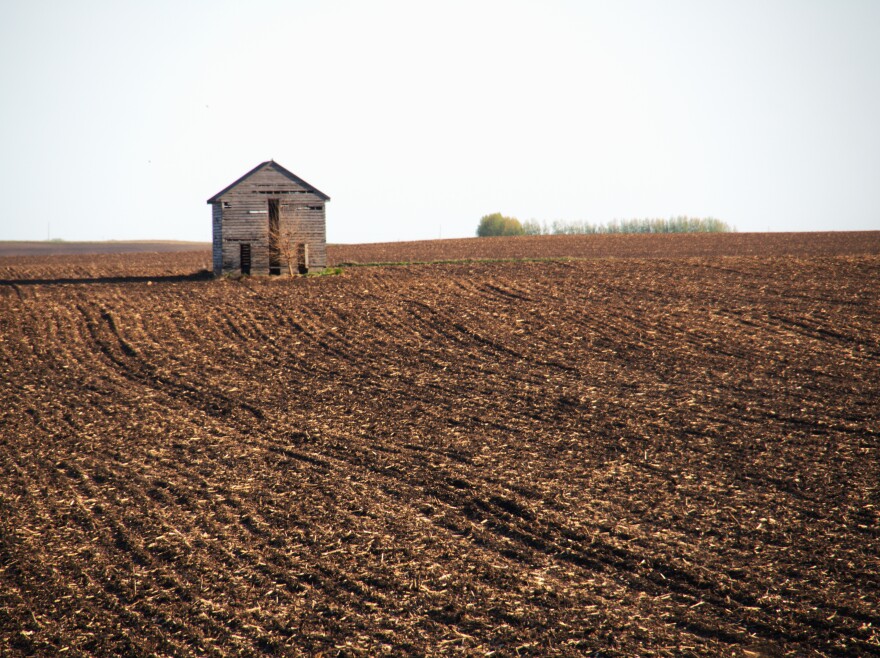You simply had to know. Most of those who traveled the two-lane highways I did across the state last weekend did know, I'm sure, and most all of them probably felt what I did, even though I never lived on an Iowa farm. From Alton to Waverly the fields all around looked absurdly abundant, rich black soil much of the world would die for, perfectly manicured, all that ground now seeded and embarrassingly bare naked, Dutch-Cleanser clean, gorgeous black dirt, all in place, things ready to grow.
Highway 3 across the state that weekend featured three stark colors—the sky’s spacious azure; thick, emerald ditches; and a hundred mile of black soil, a creation formally dressed in black and green, nothing out there to grab the eye but farm land freshly seeded. You didn't have to see what was there in the ground to know life abundant was just waiting to rise once again.
Reminded me of a passage from a Jim Heynen story in The Youngest Boy. Goes like this:
The youngest boy was not big enough to drive a tractor, but he was big enough to stand at the edge of the oats stubble field that bristled like the head of a boy with a buzz cut. The oats stubble was a dull color and definitely needed plowing over. The plot turned that stubble face-down turned the black dirt face up. Back and forth the tractor and plow went until the entire field was a lake of fresh black earth.
Same kind of wonder I couldn't help feeling, both sides of the highway a wide lake of black earth.
Things aren’t the same today. In all likelihood, there'll be thousands of tiny green troops in unending rows. That'll be beautiful too, another kind of blessing. But last Friday there was none of that--only bare naked soil, manicured and ready to bring forth what it always has and does.
Most of my life has been lived in Iowa, but I'll never be a real Iowan, like my late father-in-law, a man who, some late winter morning, claimed to hear seed corn rustling to get out of the bag. I don't smell freshly turned earth. I don't know the ways of animals.
But last Friday, driving across the state, I told myself that I've become enough of an Iowan to be blessed with what I witnessed through endless open fields, a once-a-year moment, a special blessing, maybe even something of what my father-in-law used to feel with the tractor in the shed, his feet up on the stool, so much good work behind him. He'd finished all the planting, all those seeds starting to stretch their joints in freshly turned ground.
Once upon a time, my ancestors fought about Grace (with an upper case G), differentiating two types--"common grace," of which we all are recipients, and "special grace," that ladled out only to believers.
Such distinctions are difficult and risk being pernicious, have been for that matter. But I'll say it anyway. Last week, with nothing to see but so much all around, I felt as if I was the faithful recipient of an abundance of very special grace.
All that land, just planted, was simply beautiful. I couldn’t help but notice. So would you, I promise, just a bit of real grace in a bountiful land.







